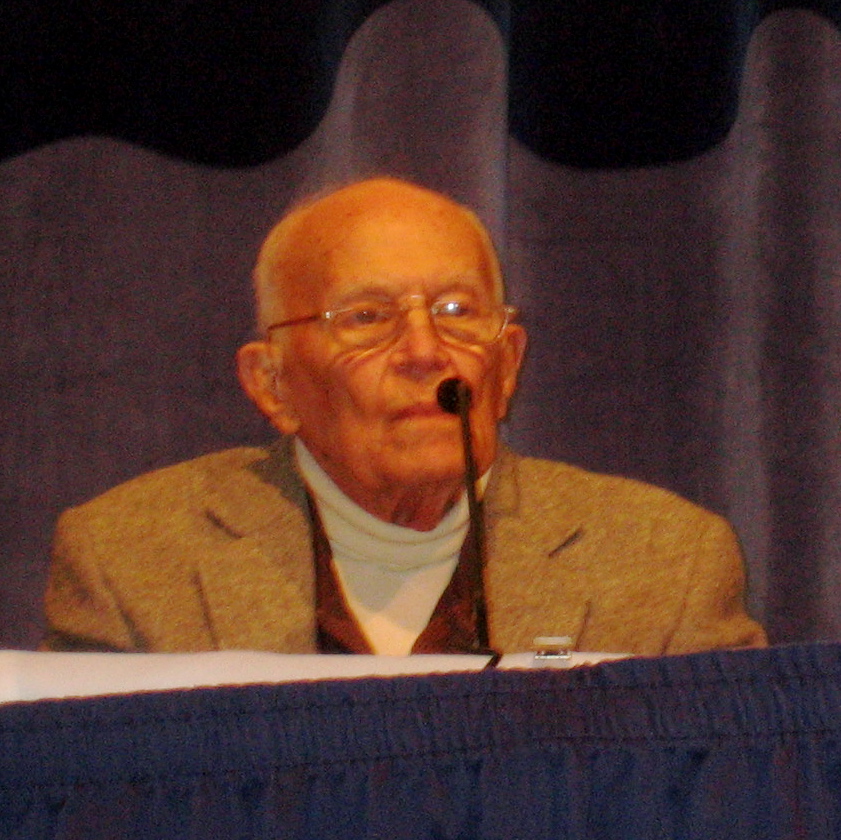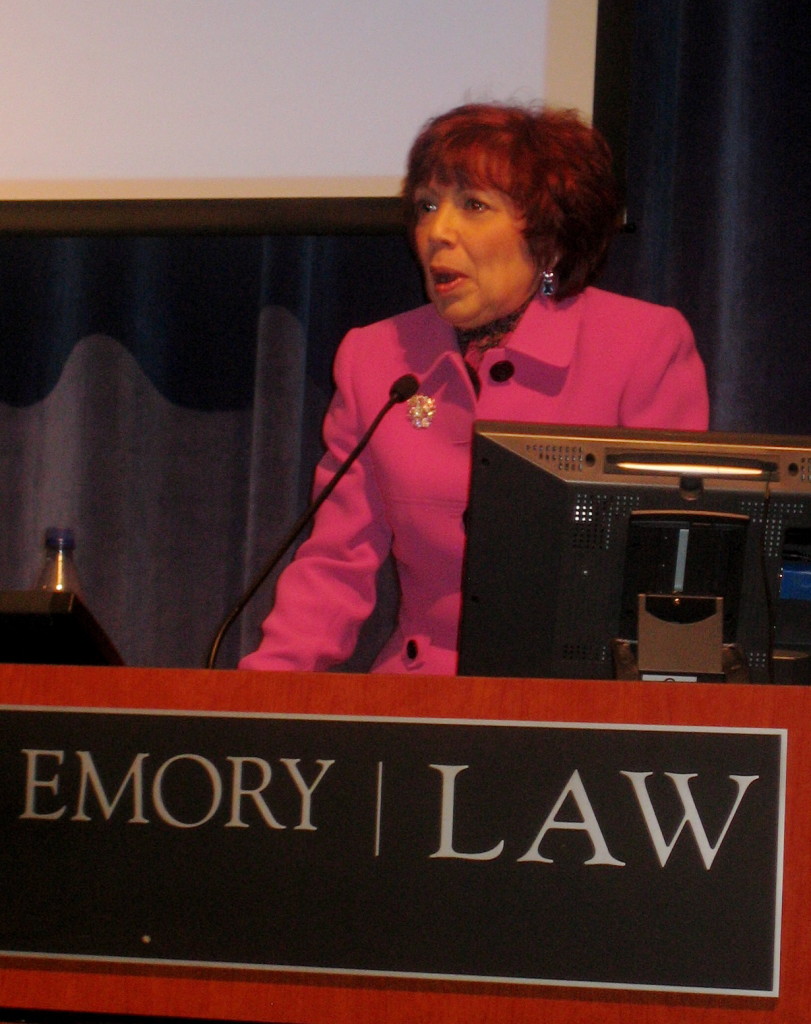Forum on Displaced Grady Dialysis Patients Held
 (APN) DECATUR — About 75 patients, doctors, and advocates gathered Tuesday, December 01, 2009, to discuss the latest details regarding dozens of dialysis patients displaced from Grady Hospital and to look for potential long-term care options for them.
(APN) DECATUR — About 75 patients, doctors, and advocates gathered Tuesday, December 01, 2009, to discuss the latest details regarding dozens of dialysis patients displaced from Grady Hospital and to look for potential long-term care options for them.
Emory University’s Center For Advocacy and Dispute Resolution, in conjunction with Grady Advocates for Responsible Care (GARC), hosted the event.
Several patients stepped forward to talk about how they are getting treatment in the wake of the October 2009 closure of the Grady Health System Outpatient Dialysis Clinic. Most are relying on temporary care being provided by Fresenius Medical Care under contract with Emory, which is set to expire January 03, 2010.
“If they close the clinic [stop accepting us at Fresenius without insurance], it’s just going to be end of life,” Bineet Kaur, 26, of Alpharetta said. “I want to live – we all want to live.”
Rosalita Valenzuela said she is receiving dialysis three times a week–presumably also at Fresenius–but noted she “does not have the means to continue with my dialysis” without Grady’s assistance.
Overall, GARC currently has 38 dialysis patients who are in danger of losing care come January, they said.
The Grady Memorial Hospital Corporation (GMHC), the non-profit board that oversees the daily operations of the health system, officially closed the clinic on October 03, 2009, after a Fulton County Superior Court judge lifted a temporary restraining order.
Grady agreed to voluntarily provide up to three months of continued outpatient dialysis care for up to 51 patients through Fresenius Medical Care until January 03, 2010, a date which is shortly approaching.
Fresenius, the world’s largest provider of dialysis services and products, has a two-year contract to provide inpatient and outpatient dialysis treatment for many of the original 96 clinic patients – but not all of them.
As previously reported by Atlanta Progressive News, Grady had sent letters to uninsured, undocumented patients informing them of the clinic closure and provided them a list of nearby private dialysis providers along with three options for future care: return to their country of origin, move to another state where they may qualify for emergency Medicaid services, or seek treatment through an emergency room.
Patient advocates blasted this plan as unrealistic and cruel, arguing that–among other issues–uprooting the patients would disrupt their treatment and severely compromise their health.
“As the kidneys fail, the body’s ability to secrete potassium goes down. That has toxic effects on the heart,” Dr. Elbert Tuttle, a nephrologist who founded the Grady dialysis clinic in the 1960s, said during the forum.
“If someone misses three or four dialysis treatments, they have to be hospitalized. That adds to the cost [of care],” he continued. “It’s not just a situation where you put on a Band Aid and say you can go home. You have to be admitted and treated.”
GARC notes Georgia law prevents undocumented, uninsured immigrants from receiving emergency Medicaid services. Other patients who are US citizens qualify for Medicaid but have yet to meet Georgia’s in-state residency requirements. Still others live outside Fulton and DeKalb Counties and claimed they did not receive guarantees from Fresenius that they would receive care.
Grady staff said in September 2009 they were providing airline, moving, and apartment rental assistance for any patients who choose to leave the state. Grady said 10 patients took this option.
However, GARC said they have heard from at least four patients who have not received this assistance while battling MexCare for continued care in Mexico.
Since the closure announcement, GARC has led the charge to prevent patients from falling through the cracks, going so far as to take legal action while reaching out to private providers who might offer to take up the slack.
“It is our job to continue to meet to find a viable, long-term dialysis treatment [plan] for patients in a collaborative environment and in partnership with medical and dialysis providers,” Dorothy Leone-Glasser, a GARC leader, said.
GARC filed an amended claim and a motion of medical abandonment in Fulton County Superior Court last week, arguing the clinic closure violates the due process clauses of the Georgia and U.S. Constitutions as well as the lease and transfer agreement between the Fulton-DeKalb Hospital Authority and the GMHC.
There will be a hearing on the amended complaint and motion on December 15, 2009.
“We are one committed voice,” Leone-Glasser said. “The powers that be had no idea the patients would be as strong as they are and as committed as they are.”
GARC has filed papers to become a 501(c)(3) non-profit organization that can seek daily operational funding and take legal action as well as keep a complete database on all dialysis patients.
Leone-Glasser said the group would like to create a cooperative powered by donations from patients, foundations, and public money. The co-op, she said, would be self-sustaining and help meet the needs of the participating patients.
“We’re going to get as many people who have a voice to come on board with us,” she told APN.
After Tuesday’s forum, Leone-Glasser and Tuttle met privately with representatives of the Health Action Network and DCI, a private dialysis provider.
“We had a very nice meeting [but] we did not come to any resolution,” Leone-Glasser told APN. “[DCI] said they could not take any patients as they are now, but said they would be willing to keep meeting with us and possibly work with us to find out if these patients can get some kind of funding for continued care.”
“If we can get other people [Emory and Grady] to the table, [DCI] would be happy to keep meeting with us to find other solutions,” she added.
GARC invited representatives from Fresenius, the Hispanic Health Coalition, and private dialysis provider DaVita, but none could make it. Leone-Glasser said Grady also received an invitation to the private meeting but did not reply.
About the author:
Jonathan Springston is a Senior Staff Writer for Atlanta Progressive News and is reachable at jonathan@atlantaprogressivenews.com.
Revised syndication policy:
Our syndication policy was updated June 2007. For more information on how to syndicate Atlanta Progressive News content, please visit: http://www.atlantaprogressivenews.com/extras/syndicate.html